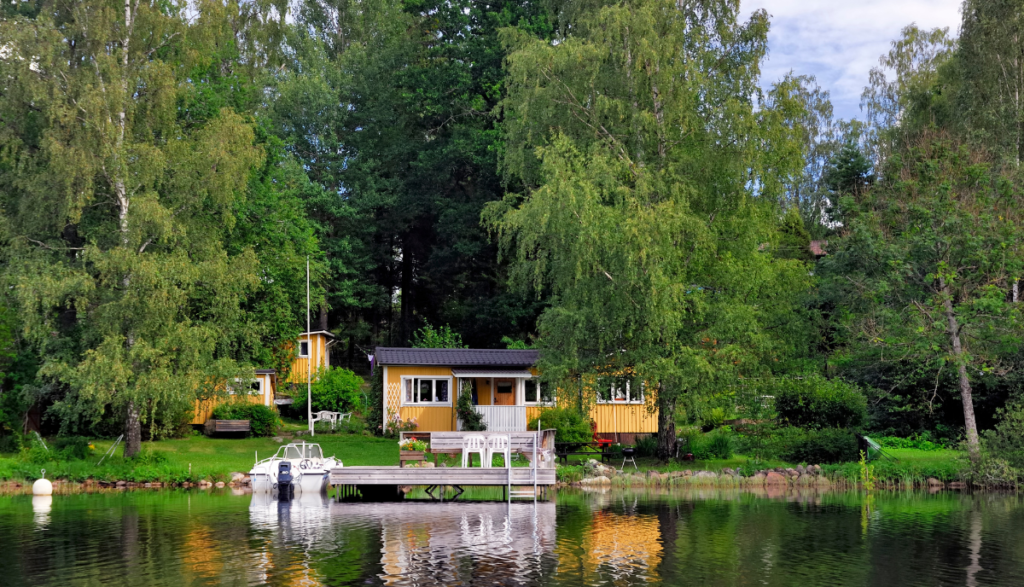After obtaining property insurance, most landlords and homeowners will ride off into the sunset, waving au revoir until next time. But nestled within your property insurance, you’re likely to find an unoccupancy clause. In essence, your cover could be reduced or restricted if your premises is unoccupied for more than a set number of days – usually 30 or 60 days. The rationale is simple: an unoccupied property has greater risk of vandalism, robbery or damage.
With continued uncertainty surrounding the rental market, travel restrictions and holiday home visits, here’s a friendly remind you to double-check your policy to avoid it going out the window.
Why does the unoccupancy clause exist?
Vacant properties, whether it be a home away from home or a rental in between tenants, are often not routinely checked upon or maintained with the same level of care as occupied homes. When a property is unoccupied, insurers generally judge it to be at a higher risk of incidents.
A vacant home is considered an easier target for thieves and vandals, while any major incidents such as a fire or water damage are likely to have a slower emergency response time. The amplified insurance risk associated with vacant properties is why many insurance providers exclude these in standard property insurance policies.
If you know that your property will be empty for a long period, you may need to purchase unoccupied insurance. For example, you might let to students, so your property is empty during the holidays, or you’re refurbishing or redecorating. Either way, having an appropriate cover is essential.
Many insurers relaxed their unoccupancy clauses and policy requirements due to COVID-19, but you’ll need to double check with yours to prevent any trouble.
What you should know as a home owner
Typical home owners’ insurance policies won’t cover fire, vandalism, liability or other forms of claims on an unoccupied or vacant property. If you leave your home or holiday home for a few months and an incident occurs, you might not be covered by your insurer, unless you have specific unoccupied and vacant home insurance.
For example, if you have a holiday home but due to COVID-19 restrictions you haven’t been able to visit for the past two months. If your vacation home is then broken into and robbed, your insurance provider might say that your policy is no longer valid due to the unoccupancy length. Because of this, you might no longer be entitled to the insured cover and could end up paying a high amount out of your pocket to cover damage.
What you should know as a landlord
Landlord insurance will usually cover unoccupied properties for longer than standard home insurance. This is because your rental property may go through periods of being vacant, for example when you’re in between tenants, if it’s a holiday home that’s unable to be rented or you’re taking the opportunity to carry out maintenance. But while your property is empty, there’s still no one around to deter potential burglars or spot hazards, such as leaks. So, it’s vital to have the right insurance in place to make sure you’re covered.
If your property will remain empty for a duration longer than your landlord insurance policy covers, then you should arrange suitable cover with your provider.
Policyholders should also be aware that duties often need to be met in order to keep the cover valid. These typically include regular, logged visits made to the property, setting the heating to a certain temperature in order to avoid frozen pipes, or draining down the water system.
Protect your unoccupied property
By now we know that a vacant property can have increased safety and security threats – but that doesn’t mean the worst is inevitable. There’s a number of things you can do as a landlord or homeowner to minimise risk during a vacant period, including:
- Increase security: Additional security measures might be necessary to prevent theft or vandalism. This could mean parameter fencing, gates, security lighting, alarms and CCTV.
- Contents relocation: If your property contains any possessions, including technology, worker’s tools or furniture, you might want to move these items to a safer space, as they might not be covered by your insurer.
- Regular visits: By making regular check-ups on your property, you can identify any hazards sooner, such as a leak or structural damage. This can minimise the destruction caused.
- Ask your neighbours: It might be worth asking the people who live around or next to the property to keep an eye out for suspicious activity if they can, though you should have other measures in place too.
We can help you get the right cover
As pandemic continues to disrupt the property and insurance markets, you should check in with your insurance broker or property insurer to see if there have been any changes regarding your cover.
For advice about your situation or policy, contact us and we can assist you.
General advice warning
The information above may be regarded as general advice. That is, your personal objectives, needs or financial situations were not taken into account when preparing this information.
Accordingly, you should consider the appropriateness of any general advice we have given you, having regard to your own objectives, financial situation and needs before acting on it. Where the information relates to a particular financial product, you should obtain and consider the relevant product disclosure statement before making any decision to purchase that financial product.

